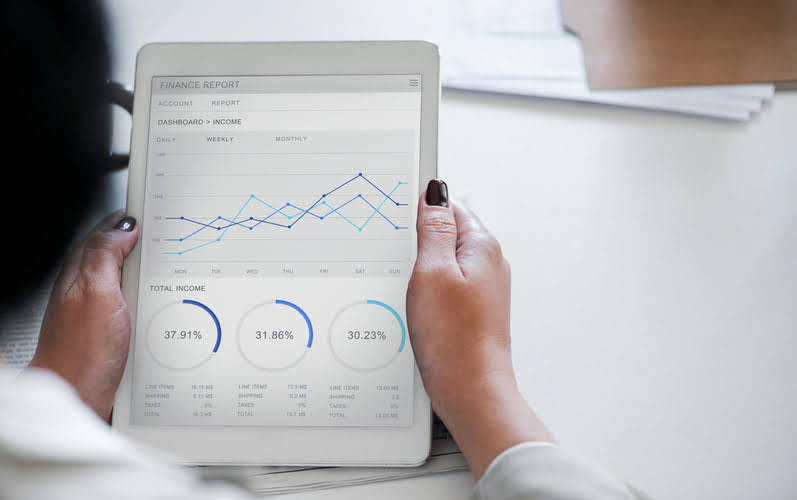Regular bookkeeping, vigilant record-keeping, and the use of industry-specific accounting software can greatly simplify this process and minimize the likelihood of errors. Whether you’re a solo agent, a property manager, or a large real estate firm, understanding the basics of real estate accounting is integral to your financial success. In the dynamic world of property and investment, many real estate professionals often underestimate the significance of structured accounting and bookkeeping. This oversight can lead to missed opportunities, mismanaged funds, and even regulatory complications. The meticulous accounting work, including real estate specific nuances, forms the backbone of a successful property business.
Real Estate Accounting Guide to Financial Controls
Taylor Accounting & Financial, PC is a Northern New Jersey CPA firm that helps all types of real estate business face their unique set of compliance, cash flow and tax issues. The best real estate accounting software for your business depends on the size of your portfolio and your specific needs. If you’re a property manager seeking free accounting software, then Wave is a great option. Large-scale property management companies should consider more sophisticated software, such as Buildium.
Association Fees and Expenses
The financial backbone of a real estate business revolves around effective accounting practices. These practices maintain the flow of funds, enabling the business to thrive even in fluctuating markets. Even though real estate accounting might seem intricate, a clear understanding of the basic steps can simplify the process dramatically. The easiest way to stay on top of these tasks is to use the latest technology and software to streamline your processes.
Benefits of good real estate accounting

Properties often have multiple revenue streams, from rentals to parking fees. Training sessions can help real estate professionals https://www.bookstime.com/ understand these revenue streams better. For real estate professionals, managing multiple revenue streams efficiently is crucial.
- If you receive an invoice for landscaping service in December, the invoice is recorded as an expense in December, even if the bill is not paid until January.
- Additionally, real estate professionals often pay membership fees to associations and other national organizations, which may count as deductions.
- Fit Small Business maintains stringent parameters for determining the “best” answers; including accuracy, clarity, authority, objectivity, and accessibility.
- Accurate bottleneck elimination drives efficiency and ensures that accounting processes remain smooth.
Yes, you can use a spreadsheet for real estate accounting, but it may not be the most efficient or accurate method, especially if you have multiple properties or transactions. A dedicated real estate accounting software can offer features such as automated data entry, transaction tracking, and tax preparation that can save you time and minimize errors. real estate accounting However, if you have a small real estate business and are comfortable with spreadsheet software, it may be a viable option. Identifying bottlenecks ensures that accounting processes remain efficient. Eliminating these bottlenecks is crucial for operational efficiency. Advanced software solutions offer features for bottleneck identification.
- Whether you’re a solo agent, a property manager, or a large real estate firm, understanding the basics of real estate accounting is integral to your financial success.
- Financial stability is a key indicator of a successful real estate business.
- Money that flows into and out of your real estate business should be categorized and posted to the property account.
- Proper accounting is complex work, and there’s a reason there’s a profession dedicated to it.
- Industry workshops offer insights into the latest real estate accounting practices.
How can Taxfyle help?

By the time a property closes, there are dozens of transactions related to the realtor and their clients. This can be an accounting nightmare if you don’t have a clear system in place. Real estate agents deal with hundreds of tasks throughout the property buying and selling process. They have costs to market themselves, improve properties, pay a variety of fees, and split the commission.

TenantCloud: Best for Mobile Property Management With Basic Accounting
- Real estate accounting software streamlines financial management by automating invoicing, payroll, and reporting tasks.
- Taxes are incredibly complex, so we may not have been able to answer your question in the article.
- For real estate professionals, accurate budgeting and forecasting are crucial for financial planning and business optimization.
- As you enter information on each rental client, the software automatically creates profit and loss reports, sales tax summaries (for easy quarterly estimates) and expense reports.
- Training sessions and advanced software solutions can further enhance financial stability.
These measures ensure that stakeholders have a clear view of a business’s financial health. Real estate accounting software plays a pivotal role in streamlining financial processes. Customization, real-time data access, and seamless integration are key features of these tools. Leveraging them ensures accurate and efficient financial management. Encouraging these sessions is crucial for consistent financial reporting.